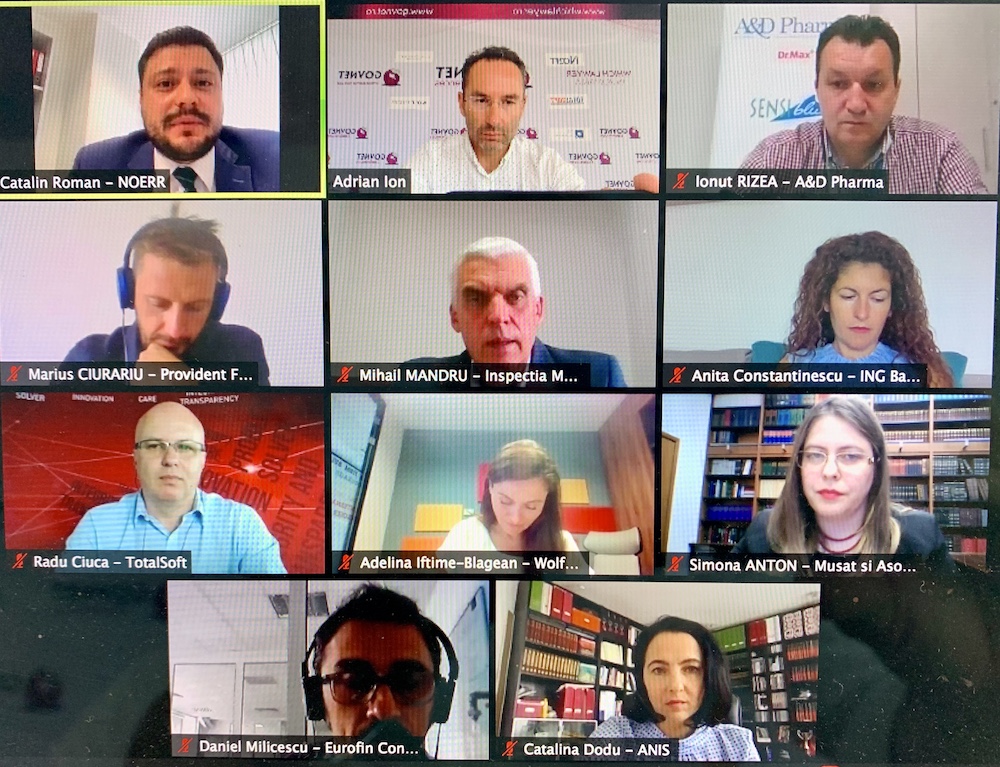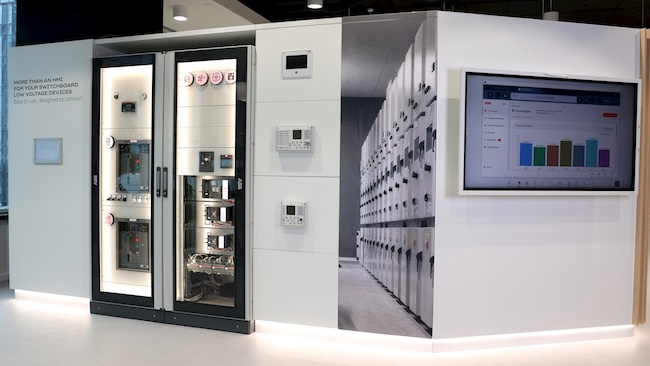Employee Safety in Telework and Work at Home discussed in GovNet Live session

GOVNET Romania continues the series of online conferences dedicated to the Romanian business environment, with a new GovNETLive event that was organized on Thursday, July 16, 2020, on "Employee Safety at Work and Work at Home", developing within it, together with guest speakers , topics related to regulatory issues, legislation, employer liability and organizational risks.
The partners of the conference were Musat and Associates, Noerr, Total Soft, Wolf Theiss and ANIS.
Flexibility of labor relations and changes in teleworking and work at home legislation have an important impact on security of the organization. The risk introduced in the company by remote work becomes inherently everyone's risk. Companies and employees are not isolated from the safety obligations of the other, although the activity does not take place in their own premises. organization. Employers' organizations will be held accountable for their decisions regarding employees.
Extremely relevant speakers revealed techniques for a proactive approach in managing relationships with employees, suppliers and third parties: Mihail Mandru - Head of Service, Health and Safety at Work, Labor Inspection, Radu Ciucă - Head of Business Intelligence, TotalSoft, Cătălina Dodu - Member ANIS Board of Directors and Country Manager, Atos IT Solutions and Services Romania, Daniel Milicescu - Managing Partner Eurofin Consult, Cătălin Roman - Labor Law Coordinator, Senior Associate, Noerr, Simona Anton - Managing Associate, Musat si Asociatii, Adelina Iftime-Blagean - Counsel, Wolf Theiss, Radu Ciuca - Head of Business Intelligence Total Soft, Anita Constantinescu - People Services Lead ING Bank Romania, Marius Ciurariu, Director of Human Resources Provident Financial and Ionut Adrian Rizea - Health & Safety Manager A&D Pharma Group.
Concepts for improving safety performance and reducing the risk of accidents throughout the chain involved in a project were discussed. This conference also provided insights into the requirements for the safe execution of remote work.
"The telework activity is based on the agreement of the parties, the employer and the employee. The digitalization of the training activity is an older preoccupation of the Labor Inspection, and only the regulation of this process remains, which will in turn lead to the elimination of the formalism contained in the OSH files, ”Mihail Mandru - Head of Service Health and Safety at Work, within the Work Inspection.
“Timekeeping - we have the legal obligation in the additional act or in the employment contract, the one that regulates the activity and the teleworking activity, to highlight exactly which is the way of registering the working hours. On the one hand, a report can be made at the end of the day to be sent by the employees, or there is the possibility of logging on to online platforms through which the employer can easily identify the actual time worked by the employee. Also, the internal regulations may provide for a separate procedure to establish the concrete way in which a telemarketer or an employee is to perform the activity in the next period, " explained Cătălin Roman - Coordinator of Labor Law Practice, Senior Associate, Noerr. "Telework remains the most used form of remote work today, and most of those who perform such an activity use information technology. If the employee is to perform for example from the park, or from the cafe, it is necessary to include these places of performance in the additional act or in the employment contract, where the obligations of OSH must be adapted to the actual place of performance of work. Regarding the provision of overtime, we must have the written consent of the employee. Telework provides the possibility for certain OSH responsibilities to be shared between the parties, for example the installation, verification and maintenance of work equipment but also the provision of means related to information and communication technology or work equipment, normally these obligations fall to the employer, but according we can provide for the law that such obligations be partially or totally fulfilled even by the employee. ”
“An important difference between OSH measures for work at home and work at the employer's premises is the form in which the obligations regarding OSH are regulated: statement on the employee's own responsibility in case of work at home and specific clauses provided in the Telework Contract in the case of telework, ” says Simona ANTON - Musat and Associates.
“Delimitation of work accidents that happened in the context of work at home compared to other domestic accidents? - this delimitation is made following the accident investigation. It is very difficult to do practically, but following the research it can be clarified, ” says Daniel Milicescu - Eurofin Consult.
“The most comprehensive way for the employer to ensure that the employee has all OSH measures and that he respects them is the comprehensive clause in the contract and / or in the WfH policy, doubled by adequate communication to the employee and, ideally, training to ensures the effective knowledge of the procedures, ”explained Adelina Iftime-Blagean - Wolf Theiss.
"As for the costs for work at home (ergonomic furniture, utilities, internet, etc.), the employer is not obliged to reimburse them, this is established between the employer and the employee," Daniel Milicescu - Eurofin Consult. He added that the employer is not responsible for the working conditions at home, having to inform the employee what are the ssm requirements established by the employer and if they are not met, a deadline can be agreed.
“Identifying and evaluating the risks at the employee's home, if the telework is carried out from abroad, as well as checking the OSH conditions at the location can be done through a self-assessment statement of the employee, and also can contract the services of an OSH provider from that country, ”added Adelina Iftime-Blagean - Wolf Theiss.
If during work at home, the person for one reason or another has a problem (hitting, burning, etc.), following the accident investigation, the final classification will be made: work accident or out of work. The employer is responsible only if he had to do something and did not do it ", added Daniel Milicescu - Eurofin Consult.
"The electronic signature can be used to legally sign the individual employment contract / addendum to it," said Simona Anton - Musat and Associates.
"Also, if the employee becomes part of the evaluation team in the context of working from home, then he / she must appear only in the evaluation questionnaire," according to those mentioned by Milicescu.
Regarding the connection used by the tele-employee, it was mentioned the use of VPNs, this technology should be made available to the tele-employee by the employer.
“For the evaluation of the employee's working conditions, from the point of view of health and safety at work, the Employer can use a questionnaire or a checklist in which to pass the aspects (work environment, technical equipment, first aid, evacuation in case fire) related to occupational safety and health. This option is accepted by as many ITMs, at least until the improvement of Law 81/2018 on telework, "explained Ionut Adrian Rizea - Health & Safety Manager A&D Pharma Group.
In the case of working from home, the management of the road accident is eliminated, added Daniel Milicescu. "Considering the definition of the road accident, if the place declared by the employee to carry out the telework activity is the employee's domicile, the road accident cannot take place. If another place of activity is declared than the home , there may be a road accident and it is being investigated according to the law, ”said Ionut Rizea - A&D Pharma.
The conference can be accessed on the YOUTUBE account of GOVNET Romania: https://www.youtube.com/watch?v=NJS6FOXOu6I&t=2762s.






